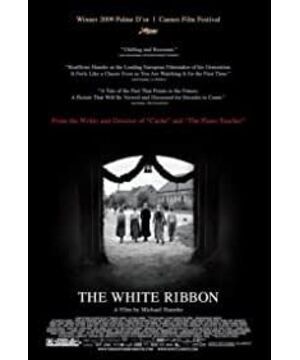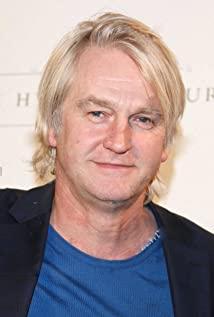Using a small village in pre-World War I Germany to dissect the entire German society, showing the origins of Nazi ideology in Germany during World War I and World War II. The film tells about the father-son relationship within several families, priests, doctors, housekeepers, farmers and Junker landlords, as well as enlarged family relations, landlords and the peasant class who depend on the landlords. Violence stems from power relations. The landlord, as the most powerful man in the village, often accumulates class hatred. The vegetable garden was destroyed, and the son was beaten and pushed into the water. The priest's preaching and punishment to karla and matin are undoubtedly extreme mental and physical violence. The housekeeper asked his son for a whistle, but his son lied, and he blew it again when he went downstairs. The whistling sound of the whistle is the long ringing of the alarm bells of World War I and World War II. This generation, distorted and deformed under the oppression of violence, in order to resist authority and vent their anger, inflict extreme violence on weaker groups. One can imagine how earth-shaking changes will be brought to society when they become the backbone of society. Despising authority, resisting authority but having totalitarian tendencies, everything is an upgraded version of the violence of the fathers. This is the ideological nature of the Nazis.
View more about The White Ribbon reviews










